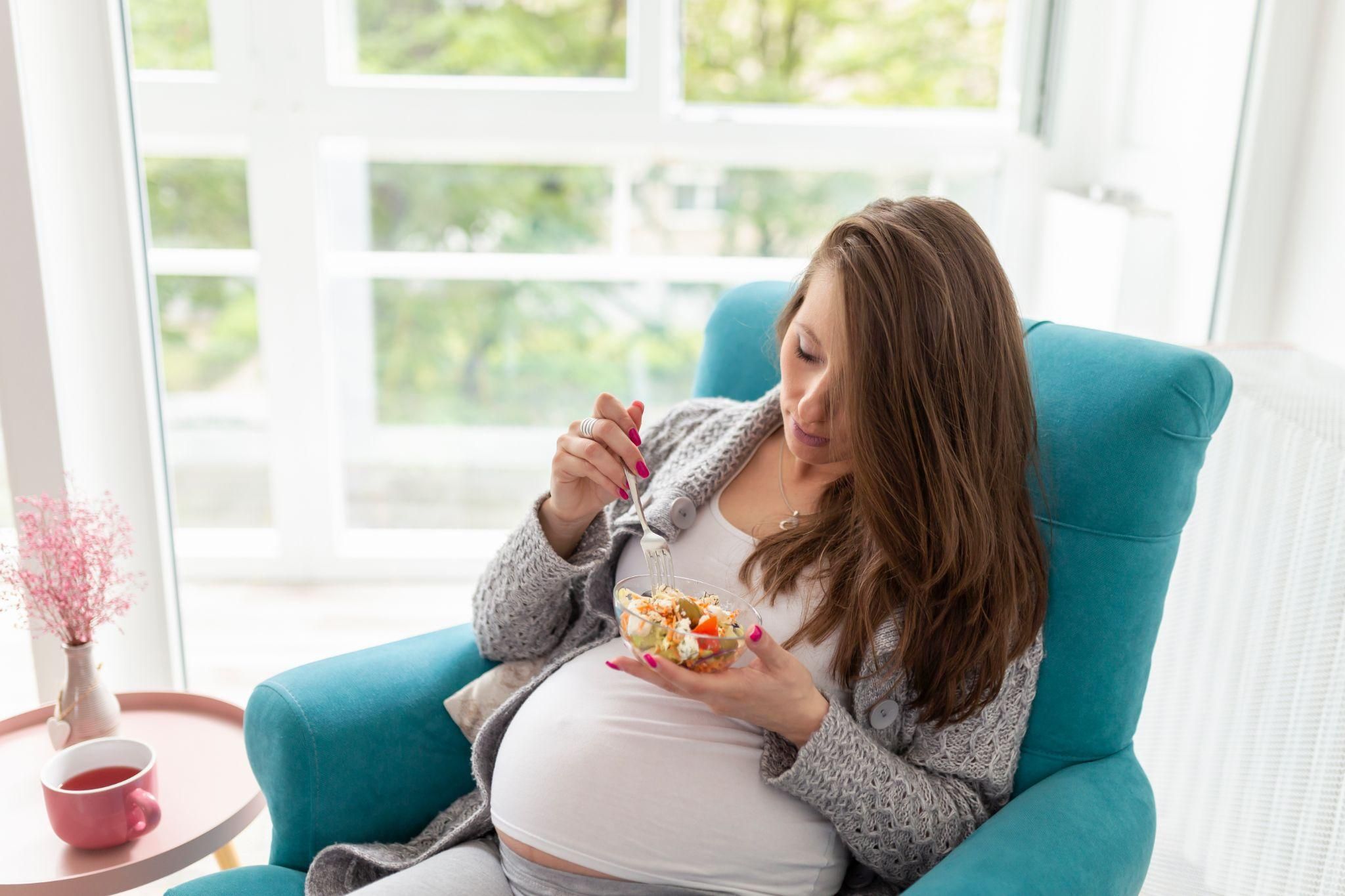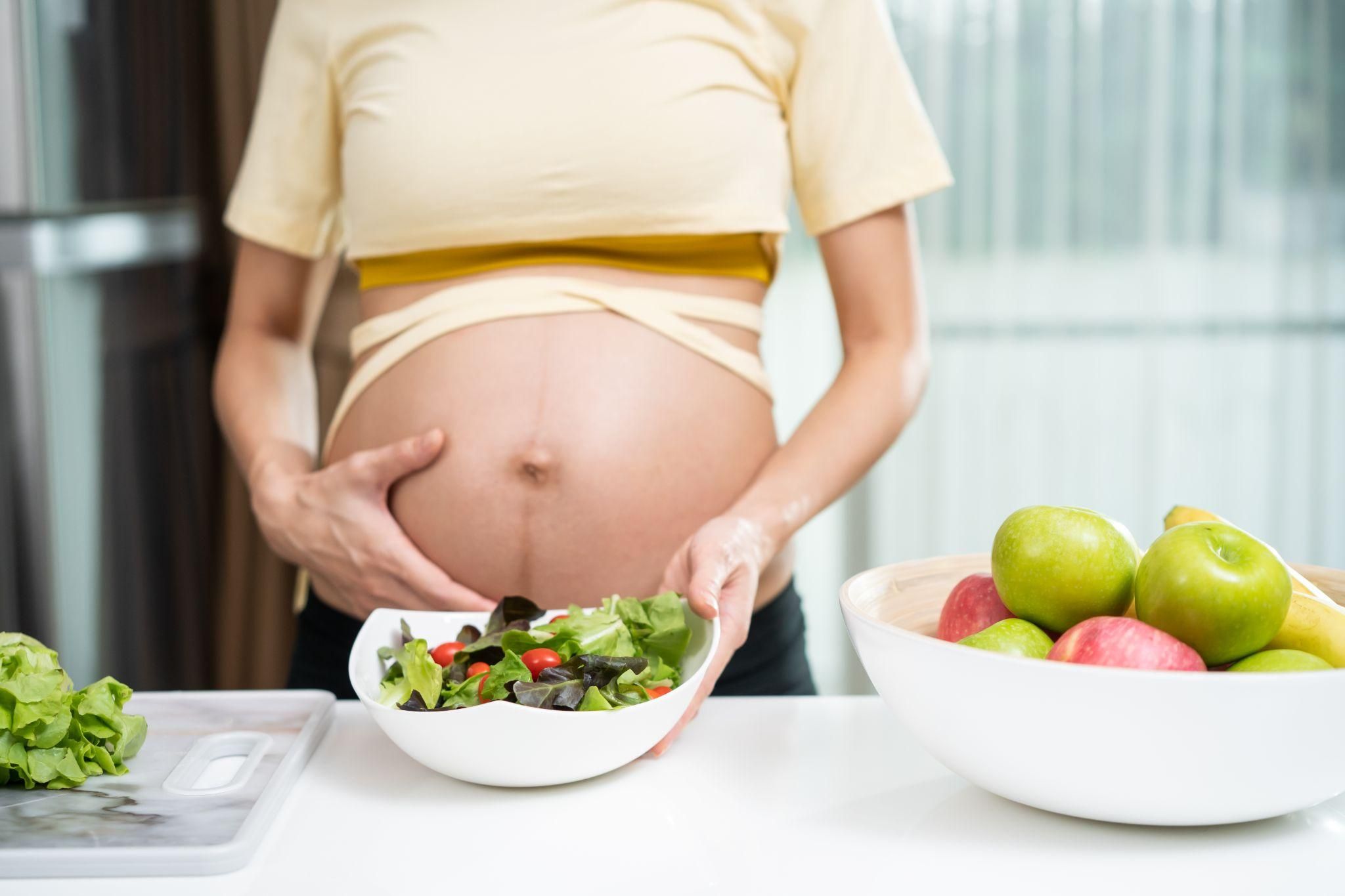Eating a balanced and nutrient-rich diet during pregnancy is one of the best ways to support both maternal and baby health. Nutrition plays a key role in antenatal care, providing the building blocks for your baby’s growth and helping you stay strong and energised throughout pregnancy. In this article, we’ll look at essential nutrients needed for a healthy pregnancy, how they contribute to foetal development, and tips on incorporating them into your daily diet. Alongside regular antenatal appointments and guidance from healthcare providers, prioritising these nutrients will help support a positive pregnancy journey.
The Importance of Nutrition in Antenatal Care
Good nutrition during pregnancy helps reduce the risk of complications, supports the baby’s growth, and strengthens the mother’s body for childbirth. Many healthcare providers recommend antenatal vitamins to help meet increased nutritional needs, but it’s also important to include whole foods as a primary nutrient source. By combining a healthy diet with professional pregnancy care and routine checkups, you can give your baby the best possible start.
Key Nutrients for a Healthy Pregnancy
Folate and Folic Acid
Folate is a B vitamin essential for developing the baby’s brain and spinal cord, especially in early pregnancy. Folic acid, the synthetic form of folate, is often included in prenatal supplements to help prevent neural tube defects.
Sources: Leafy greens, oranges, fortified cereals, and lentils.
Tips: Ensure you’re getting at least 400 micrograms daily, either through diet or antenatal vitamins, particularly in the first trimester.
Iron
Iron supports oxygen transport in the blood, essential for both mother and baby. Pregnant women need more iron due to increased blood volume, and iron deficiency can lead to anaemia, causing fatigue and other complications.
Sources: Red meat, spinach, lentils, and fortified cereals.
Tips: Pair iron-rich foods with vitamin C (like oranges) to enhance absorption. If you’re concerned about iron intake, speak to your healthcare provider about iron supplements, which are often included in antenatal vitamins.
Calcium
Calcium is essential for the baby’s bones, teeth, and muscle development. During pregnancy, if calcium intake is insufficient, the body will take calcium from the mother’s bones, potentially affecting her long-term bone health.
Sources: Dairy products, fortified plant milks, leafy greens, and almonds.
Tips: Aim for three servings of dairy or fortified alternatives daily to support calcium intake, especially if you’re not getting enough from other sources.
Omega-3 Fatty Acids
Omega-3 fatty acids, particularly DHA, are important for the baby’s brain and eye development. These healthy fats also benefit the mother’s heart health and may help reduce the risk of preterm labour.
Sources: Salmon, flaxseeds, chia seeds, and walnuts.
Tips: Aim to include oily fish in your diet twice a week, choosing low-mercury options like salmon and sardines. If you don’t eat fish, consider a DHA supplement as part of your antenatal care.
Protein
Protein is essential for the growth of maternal tissues and the baby’s organs. As pregnancy progresses, protein needs increase, making it important to consume a variety of protein sources.
Sources: Chicken, fish, eggs, beans, and nuts.
Tips: Include a source of protein in each meal to support consistent energy and growth. If eating eggs, look for those with the Red Lion Stamp to ensure they are safe to eat raw or partially cooked in the UK.
Vitamin D
Vitamin D plays a key role in regulating calcium and phosphate levels, essential for developing healthy bones and muscles. A deficiency in vitamin D can lead to complications for both mother and baby.
Sources: Fatty fish, fortified dairy products, and safe sun exposure.
Tips: In the UK, due to limited sunlight exposure, especially in winter, many healthcare providers recommend a vitamin D supplement as part of antenatal vitamins.
Fibre
Fibre is essential for digestive health, which is particularly important during pregnancy as hormonal changes can slow digestion. High-fibre foods help prevent constipation, stabilise blood sugar, and support heart health.
Sources: Whole grains, fruits, vegetables, and legumes.
Tips: Add fibre gradually and drink plenty of water to aid digestion. Incorporate fibre-rich snacks like fruit, nuts, or whole-grain crackers.
Building a Balanced Pregnancy Diet
Tips for Planning Nutritious Meals
To ensure you’re getting a wide range of nutrients, try to include a variety of foods in each meal. Here are some simple tips to help build balanced meals:
Eat the Rainbow: Include different-coloured fruits and vegetables to maximise nutrient variety.
Choose Healthy Snacks: Keep snacks like nuts, fruit, or yoghurt on hand for quick, nutrient-dense options between meals.
Stay Hydrated: Aim for 8 glasses of water daily to support hydration and amniotic fluid levels.
When to Use Antenatal Vitamins
While a balanced diet is ideal, antenatal vitamins can help cover any gaps. Most healthcare providers recommend prenatal supplements containing folic acid, iron, vitamin D, and calcium to meet increased nutritional needs. During your antenatal appointments, consult with your provider about your specific dietary needs to determine the best supplement plan for you.
Additional Nutrition Tips and Adjustments for Pregnancy
As your body adjusts to pregnancy, you may need to modify your diet to manage common pregnancy challenges like morning sickness, cravings, and aversions.
Managing Morning Sickness
Nausea can make it challenging to eat balanced meals, especially in early pregnancy. Here are some tips to help:
Eat Small, Frequent Meals: Having smaller meals every few hours may reduce nausea and maintain energy levels.
Opt for Bland, Easy-to-Digest Foods: Foods like plain crackers, bananas, and yoghurt can be gentler on the stomach.
Stay Hydrated: Sip water regularly to stay hydrated, particularly if you’re experiencing morning sickness.
Choosing Safe Eggs: The Red Lion Stamp
In the UK, pregnant women are advised to look for eggs marked with the Red Lion Stamp, which indicates that the eggs meet stringent safety standards and can be eaten raw or partially cooked without risk. These “Laid in Britain” eggs come from hens vaccinated against salmonella, making them a safe and convenient source of protein for expectant mothers. Incorporating eggs with the Red Lion Stamp in your diet is a great way to add protein while ensuring food safety during pregnancy.
Satisfying Cravings Safely
Cravings are common during pregnancy, but it’s essential to balance indulgences with nutrient-dense choices:
Satisfy Cravings with Healthier Alternatives: If you crave sweets, try yoghurt with fresh berries or a smoothie instead of high-sugar snacks.
Include Protein or Fibre: Add some protein or fibre to sweet snacks to keep blood sugar stable. Try pairing fruit with a handful of nuts for a balanced option.
Foods to Avoid or Limit During Pregnancy
While it’s important to focus on getting essential nutrients, there are certain foods you should limit or avoid during pregnancy to reduce potential risks.
Raw or Undercooked Meat and Eggs: To reduce the risk of harmful bacteria, ensure meat is fully cooked and use Red Lion Stamp eggs if you choose to eat them raw or partially cooked.
Certain Fish: Avoid fish with high mercury content, like swordfish and king mackerel. Instead, choose low-mercury options such as salmon or cod.
Unpasteurised Dairy and Soft Cheeses: These can carry bacteria harmful during pregnancy. Opt for pasteurised dairy products to ensure safety.
Caffeine and Sugary Foods: Limit caffeine intake to no more than 200 mg per day (about one 12-ounce cup of coffee), and reduce sugary snacks to prevent blood sugar spikes.
Importance of Antenatal Checkups for Monitoring Nutrition
Regular antenatal checkups are essential for monitoring both your health and your baby’s development. During these visits, healthcare providers may review your dietary intake, monitor weight gain, and recommend any necessary adjustments. Antenatal clinic visits are an opportunity to discuss your specific dietary concerns, helping you ensure that your nutritional intake supports both your wellbeing and that of your baby.
Antenatal Education for Healthy Pregnancy Nutrition
Attending antenatal classes or accessing antenatal education resources can provide valuable guidance on maintaining a healthy diet, making smart food choices, and understanding nutritional needs. These classes often include information on balancing cravings, meal planning, and addressing common dietary challenges during pregnancy. Learning about nutrition through antenatal education gives expectant parents the tools and knowledge to make informed choices, enhancing overall health and preparation for childbirth.
A well-balanced diet rich in essential nutrients is key to a healthy pregnancy journey. By focusing on essential nutrients like folate, iron, calcium, protein, omega-3s, and fibre, and supplementing with antenatal vitamins if needed, you’ll be giving your baby the best foundation for growth. Alongside these dietary practices, choosing Red Lion Stamp eggs and attending regular antenatal appointments will help ensure a smooth and well-supported pregnancy experience.
With a focus on nutrition, professional guidance, and regular checkups, you can feel confident that you’re meeting your body’s needs and supporting your baby’s development. Good nutrition is a fundamental part of antenatal care and will help keep you feeling energised, healthy, and well-prepared for each stage of pregnancy.
References
- The Ultimate Antenatal Classes
Prepare for labour, birth, and baby care with nine experts, including senior NHS midwives and an award-winning obstetrician!
https://unii.com/en/journey/ultimate-antenatal-classes







